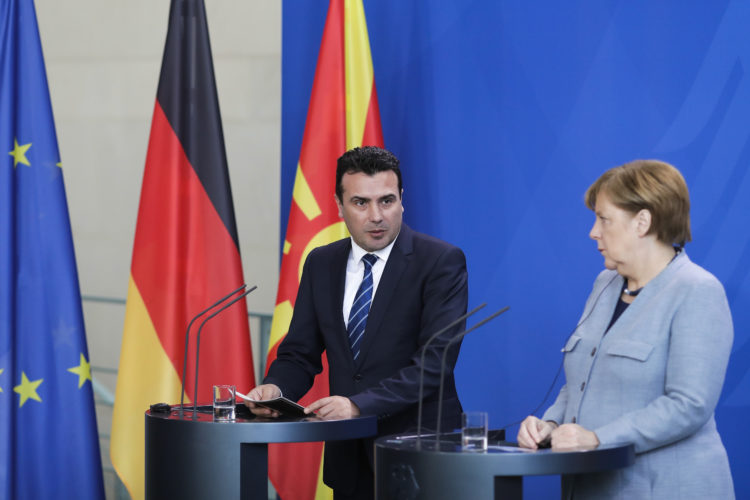Skopje, FYROM—The name dispute between Greece and the Former Yugoslav Republic of Macedonia (FYROM) enters its final mile.
A referendum will take place Sept. 30 to decide whether or not the Prespa Agreement between the two countries will be ratified. If the agreement receives the green-light from the citizens of FYROM, the country will change its name to North Macedonia. Then, the way will be open for the small Balkan country to enter the European Union (EU) and NATO.
Jens Stoltenberg, NATO’s Secretary-General, stated that the transatlantic military alliance won’t accept FYROM unless it resolves its name dispute with Greece. Stoltenberg, who is currently visiting the country, encouraged FYROM’s citizens to approve the deal.
President Donald Trump also encouraged FYROM’s citizens to end the deadlock. In a letter he said, “The Agreement and Macedonia’s membership in NATO will bolster security, stability, and prosperity throughout the entire region. The United States stands ready to support Macedonia, especially with respect to upcoming discussions on your membership in NATO.”
FYROM’s Foreign Minister Nikola Dimitrov added, “I am sure that the forthcoming referendum will be a success, as Macedonian citizens always make wise decisions when their country is at a crossroads.”
And they aren’t the only foreign dignitaries to campaign for a ‘Yes’ vote: German Chancellor Angela Merkel and Austrian Chancellor Sebastian Kurz will be visiting the country this weekend to voice their support for a final resolution.
FYROM is also eager to join the EU. Yet even if the proposal goes through, FYROM would have to abide by certain democratic, rule-of-law and economic, among other criteria to join the EU and/or the Eurozone (not all members of the Eurozone—countries that use the euro—are part of the EU).
The Prespa Agreement was signed earlier this summer. But even if the Agreement surmounts the referendum hurdle, it will also have to be approved by the Greek Parliament. Not a likely event, given the domestic opposition in Greece. A recent poll revealed that only 12.8 per cent of Greeks support the Agreement.
In the wake of the Agreement’s promising tidings, FYROM’s economy grew by 3.1 percent in the second quarter of 2018 (around $3 billion). Last year the country recorded zero economic growth.
“We have decided to deal with the problems seriously and bravely, and we were able to resolve a dispute that has kept our country back for about three decades, and we are opening the door to the future. What is now at stake is our stability, our security, our well-being and access to the best available reform, the accession negotiations with the EU,” said Dimitrov.
The American negotiator Matthew Nimitz, moreover, warned that if the agreement doesn’t proceed, “it may take another 25 years. And a lot of people will lose interest if this does not pass in your country.” He stressed that a negative result would signal an unwillingness to join the West and move more toward Russia’s influence.
Already have an account? Sign In
Two ways to continue to read this article.
Subscribe
$1.99
every 4 weeks
- Unlimited access to all articles
- Support independent journalism
- Ad-free reading experience
Subscribe Now
Recurring Monthly. Cancel Anytime.











COMMENTS